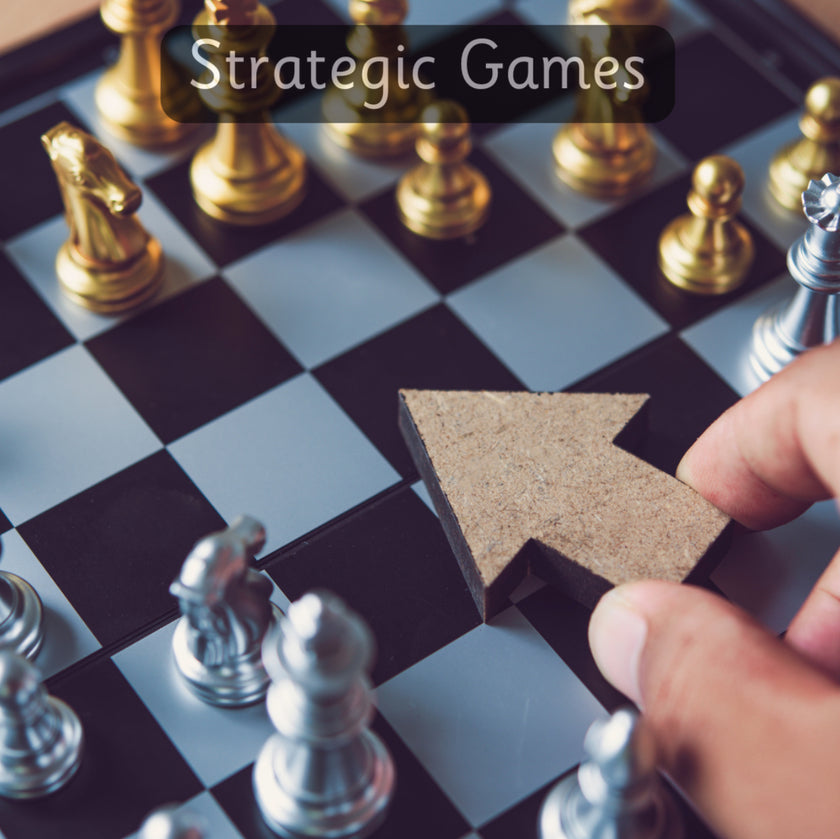The Ultimate Guide to Toys for Social Relationships for Kids
As a caregiver, you know the importance of nurturing social skills in children. Toys can be wonderful tools to help children learn how to interact with others, share, and work as a team. In this guide, we'll explore various toys that foster social relationships among kids, categorized by age and type. Get ready to discover exciting and educational toys that make socializing fun!
Simple Card Games (4 years +)
Card games are a fantastic way to introduce young children to social play. Games like "Go Fish" and "Old Maid" are simple, fun, and teach kids how to take turns and follow rules. These games also help develop memory and matching skills.
Social Family Games (7 years +)
Family game nights can create lasting memories. Games like "Monopoly" and "Scrabble" require strategic thinking and encourage family bonding. These games often involve multiple players and can range from medium to difficult knowledge levels.
Co-operative Games (4 years +)
Co-operative games emphasize teamwork over competition. Games like "Pandemic" and "Forbidden Island" teach kids the value of working together to achieve a common goal. These games are great for building communication and problem-solving skills.
Games of Chance (5 years +)
Games of chance, such as dice games, coin flipping, and bingo, are perfect for teaching kids about probability and luck. These games are easy to understand and can be a lot of fun for the whole family.
Table Games with Pathways (4 years +)
Games like "Candy Land" and "Chutes and Ladders" are classics for young children. These games involve moving pieces along a pathway based on dice rolls or spinners. They help kids learn counting and basic game mechanics.
Social Games for Young Children (4 years +)
Simple social games like "Duck Duck Goose" and "Musical Chairs" are ideal for preschoolers. These games involve several players and are easy to understand, making them perfect for young children.
Ability and Skill Games (5 years +)
Games that focus on skill and dexterity, such as "Jenga" and "Operation," are great for developing hand-eye coordination and fine motor skills. These games also teach kids about patience and precision.
Electronic Ability and Skill Games (4 years +)
Electronic games, including video games and hand-held devices, offer interactive experiences that can simulate real life. Games like "Minecraft" and "Mario Kart" encourage strategic thinking and problem-solving.
Simple Strategy and Reasoning Games (5 years +)
Games like checkers, trading card games, and dominoes are excellent for teaching basic strategy and reasoning. These games are easy to learn and can be enjoyed by players of all ages.
Games for Strategy and Reasoning (6 years +)
More complex games like chess and strategy board games require advanced thinking and planning. These games are perfect for older children who enjoy challenging themselves and thinking ahead.

Simulation, Conquering, and Role-Playing Games (9 years +)
Games like "Risk" and role-playing games (RPGs) allow players to immerse themselves in different scenarios and make strategic decisions. These games teach kids about planning, negotiation, and resource management.
General Knowledge Games (7 years +)
Games that test general knowledge, such as trivia games, are great for learning new facts and improving memory. These games cover a wide range of subjects and can be both educational and entertaining.
Number and Letter Games (6 years +)
Games like "Scrabble" and "Boggle" require players to create or discover words and numbers. These games are perfect for improving vocabulary and arithmetic skills.
Magic Kits (7 years +)
Magic kits provide hours of fun and help kids develop presentation and social skills. Performing magic tricks can boost confidence and encourage kids to engage with others.
Game Collections (6 years +)
Game collections that include a variety of games in one box are perfect for family gatherings. These collections often include classics like chess, checkers, and backgammon, offering something for everyone.
Conclusion
Toys for social relationships are more than just fun; they are essential tools for developing important social skills in children. By choosing the right games for the right age group, you can create enjoyable and educational experiences that foster teamwork, communication, and strategic thinking. So, gather your family, pick a game, and let the fun and learning begin!



 DimpleBee.
DimpleBee.